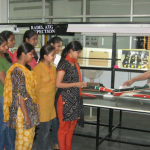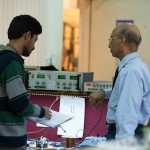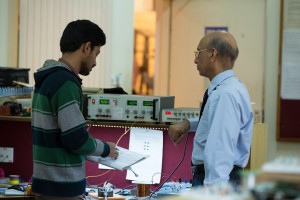The original article appeared in The Statesman
About 1.5 million engineers graduated from more than 3,500 engineering colleges across India in 2014, but how many of them are really employable in the core industries?
One of the studies (Aspiring Minds, Report 2014) says that only a shocking four to seven per cent of them are actually fit for jobs in the core engineering sectors. An earlier study by the World Bank (2010) showed that employers were not satisfied with the fresh engineering graduates they recruited. Graduates seemed to lack higher order thinking skills: analysing, evaluating and creating.
It is this gap between the existing education system and the actual industry requirement that needs to be met. The sunrise industries of aerospace, defence and electronics need thousands of skilled engineers for design as well as manufacture. Today, while we find many training institutes for software, even computer hardware and networking, there are very few training schools for engineers in core disciplines, especially electronics and aerospace engineering design, and none that include robust processes, documentation and project management.
Currently, the Radel Group has embarked on a novel initiative for the engineering fraternity aimed at mentoring and training them in a real industrial environment on live projects to make them industry-ready. The Drona School of Engineering Practice is a timely and unique initiative that focuses on creating skilled engineers, especially for the electronics, aerospace and defence sectors.
There are several areas where the “Apprenternship” programme offered by Drona differs from other training programmes. The most important one is the mentorship provided by veterans of industry and personal guidance from one of the most respected inventors of India. Another key differentiator is the hands-on work experience and exposure to live projects. The student gets an insight into the design and development cycle of defence and aerospace systems that meet global industry standards of performance, reliability and efficiency. The graduate is trained in systematic quality analysis and documentation processes that are essential for a manufacturing industry, especially in the A&D sector.
The “Apprentern” is provided soft-skills training and a working knowledge of how an industry operates. A fresh engineering graduate who opts for the Drona programme at Radel goes through a complete transformation of his/her thought process, through which critical, analytical and innovative skills blossom.

Training is provided in written and oral communication skills, business etiquette and time management. The engineer emerges at the end of the course as a confident and competent young and dynamic professional, with enhanced communication skills — in effect, industry-ready. Every industrialist is aware of the time, cost and effort of training fresh engineers. In most organisations, the first few months are spent in training new recruits, with literally no output. The Drona programme takes on the initial training effort of the industry and provides the employer with a trained engineer, ready for the job, so that the employer gets productivity from the new engineer right from day one.
The intensive six-month holistic programme, “Campus2Career”, offers several skilling programmes in embedded systems, avionics, electronics design and related domains comprising all aspects that are required to make a fresh engineer job-ready. The aspiring trainee can select from a variety of subject modules that have combinations of embedded software, embedded electronics design, avionics, mechanical Cad and PCB designs, technical documentation and project management, apart from a basic introduction to various facets of industry (production, planning, admin, HR, etc) and, importantly, soft skills such as verbal and written communication, time management and business etiquette.
The first session of Drona’s “Campus2Career” starts from 1 July 2015.




